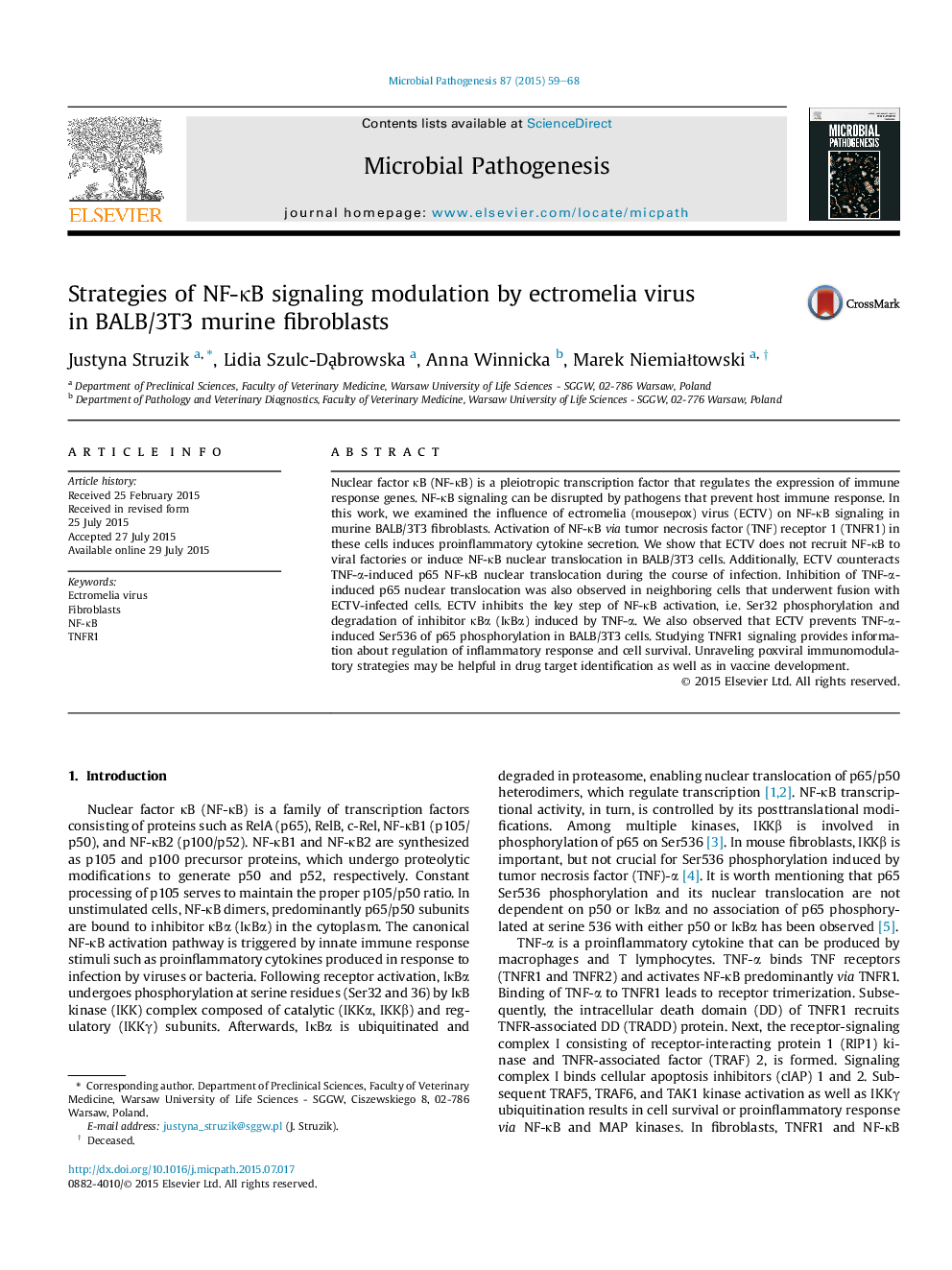| Article ID | Journal | Published Year | Pages | File Type |
|---|---|---|---|---|
| 3416473 | Microbial Pathogenesis | 2015 | 10 Pages |
•ECTV does not recruit NF-κB p65 to viral factories.•ECTV affects NF-κB p65 nuclear translocation during the course of infection in BALB/3T3 fibroblasts.•ECTV inhibits phosphorylation of p65 on Ser536 in BALB/3T3 fibroblasts.•Syncytia formation during ECTV infection may correlate with inhibition of NF-κB signaling in neighboring cells.
Nuclear factor κB (NF-κB) is a pleiotropic transcription factor that regulates the expression of immune response genes. NF-κB signaling can be disrupted by pathogens that prevent host immune response. In this work, we examined the influence of ectromelia (mousepox) virus (ECTV) on NF-κB signaling in murine BALB/3T3 fibroblasts. Activation of NF-κB via tumor necrosis factor (TNF) receptor 1 (TNFR1) in these cells induces proinflammatory cytokine secretion. We show that ECTV does not recruit NF-κB to viral factories or induce NF-κB nuclear translocation in BALB/3T3 cells. Additionally, ECTV counteracts TNF-α-induced p65 NF-κB nuclear translocation during the course of infection. Inhibition of TNF-α-induced p65 nuclear translocation was also observed in neighboring cells that underwent fusion with ECTV-infected cells. ECTV inhibits the key step of NF-κB activation, i.e. Ser32 phosphorylation and degradation of inhibitor κBα (IκBα) induced by TNF-α. We also observed that ECTV prevents TNF-α-induced Ser536 of p65 phosphorylation in BALB/3T3 cells. Studying TNFR1 signaling provides information about regulation of inflammatory response and cell survival. Unraveling poxviral immunomodulatory strategies may be helpful in drug target identification as well as in vaccine development.
